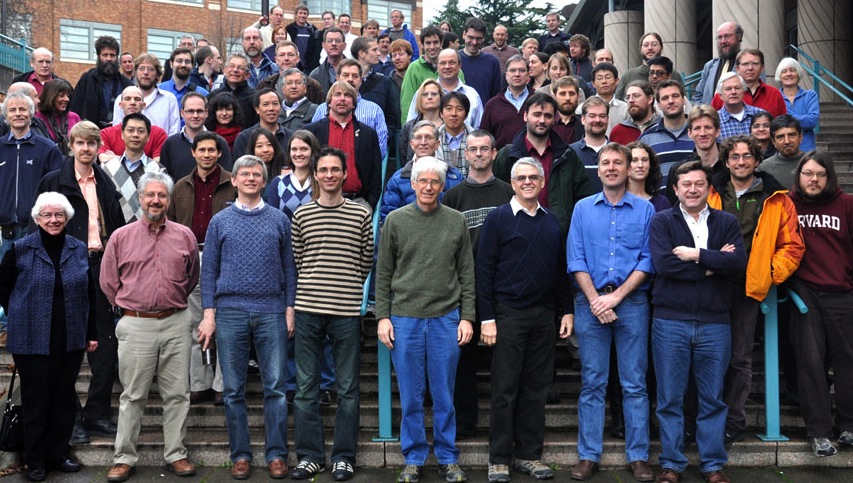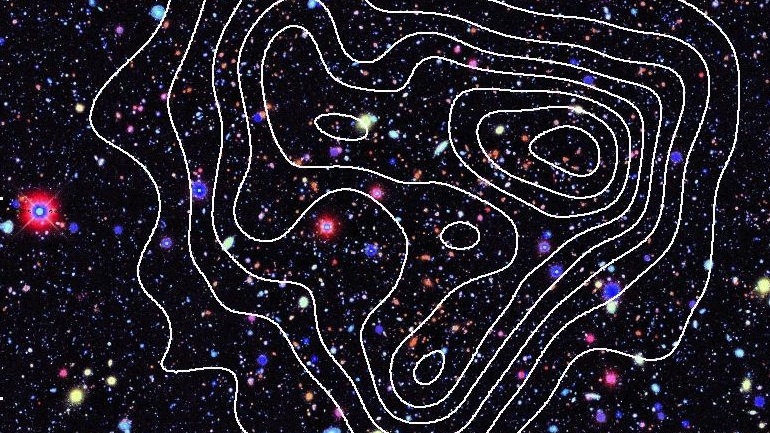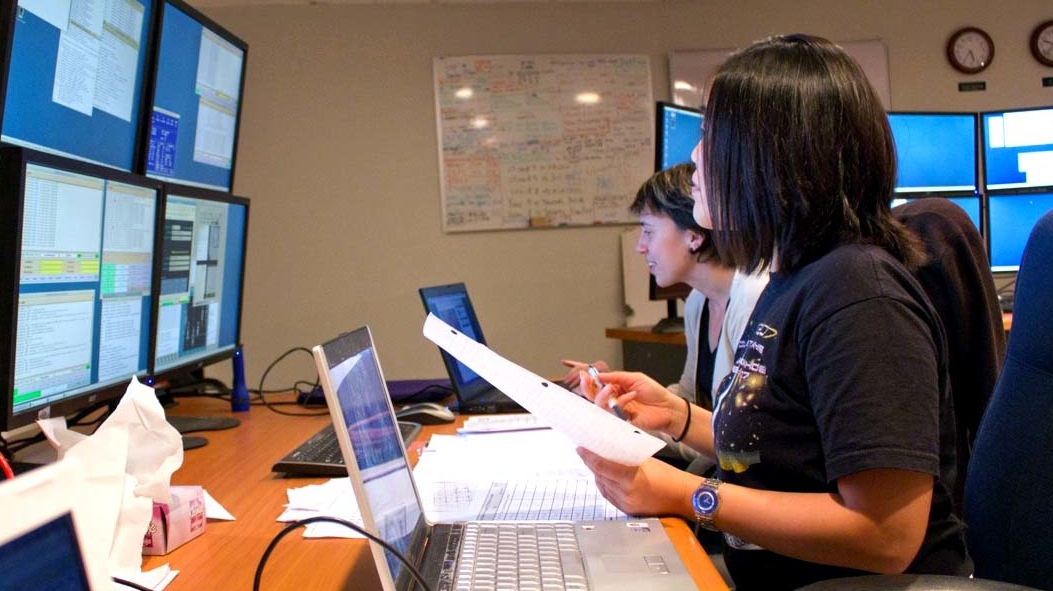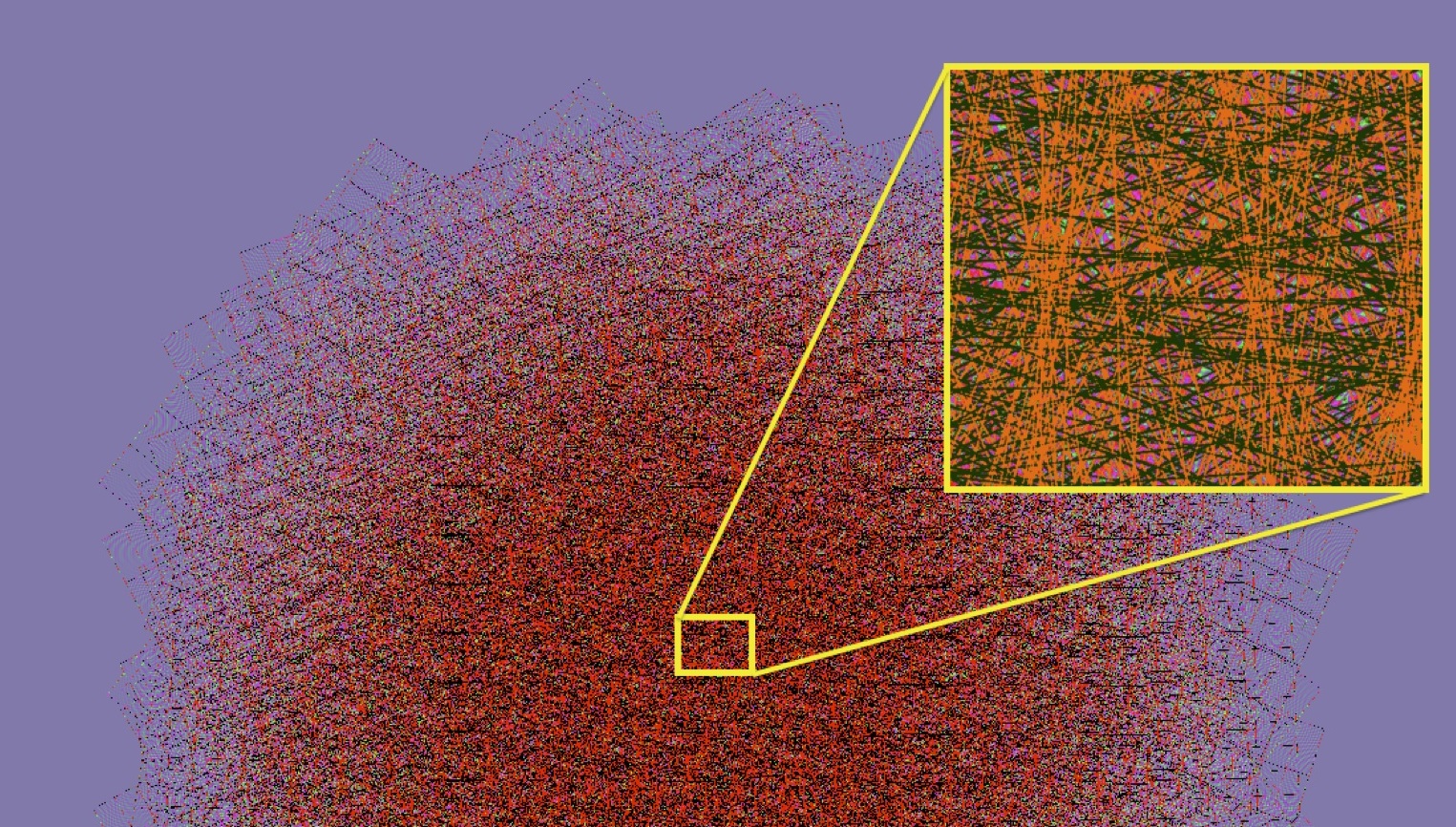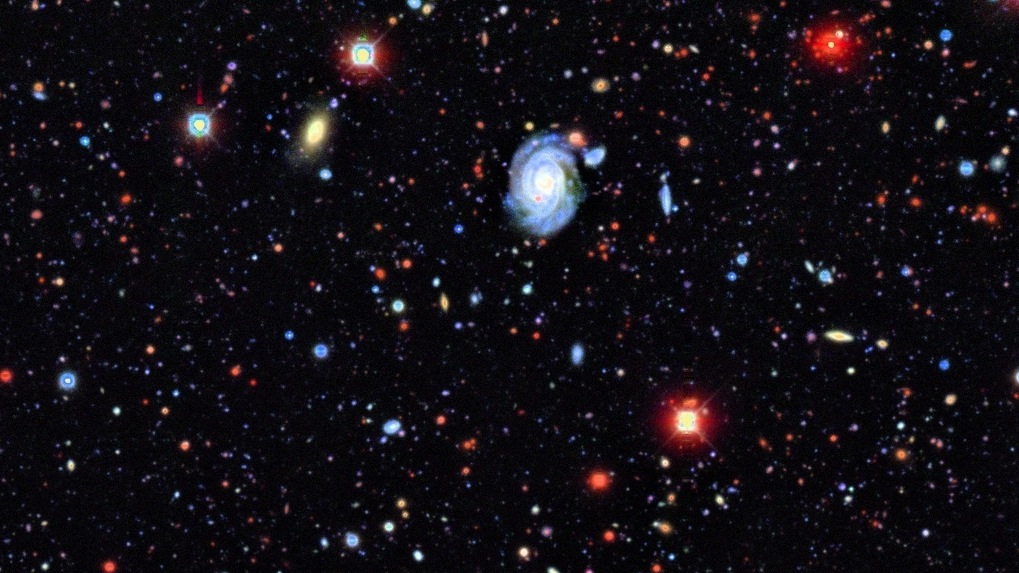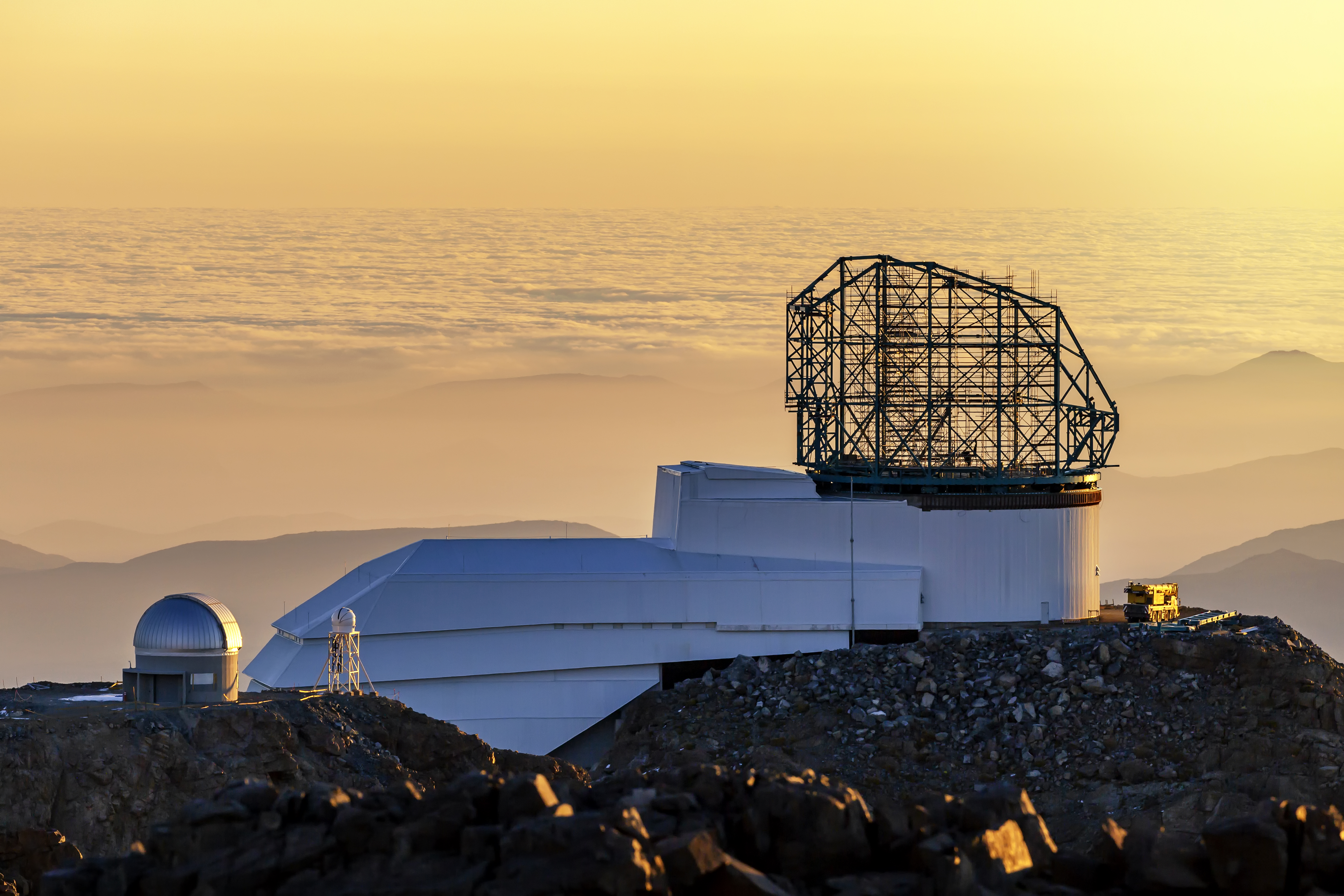Most of our universe is composed forms of mass-energy which we do not understand, and which is outside the current model of particle physics. Novel probes of "new physics" is our goal. In our group we pursue the physics of dark matter and dark energy via weak gravitational lensing probes of the universe, development of a new international facility now nearing completion, and a laboratory dark matter direct detection experiment. We do this with state-of-the-art astronomical observations of millions of galaxies [the Deep Lens Survey, DLS] and by building next-generation capability to map billions of galaxies: 2025-2035 the Vera Rubin Observatory in Chile will undertake the Legacy Survey of Space and Time, LSST. The lab dark matter search experiment is called "Dark Radio."
Using the DLS we have measured the dark matter power spectrum normalization, detected the growth in dark matter halos associated with galaxies over cosmic time, and demonstrated the new technique of weak lens cosmic magnification tomography. We continue these analyses with the Subaru Hyper Suprime Cam (HSC), applying the results to the LSST Data Management Pipeline.
We originally developed the LSST project mainly as a cosmological tool. Under development for two decades, the LSST construction project was funded in 2014 by the NSF and DOE, and we expect “first light” in 2025. DLS is a precursor to the LSST survey, so we have used it to develop and test novel cosmology analysis algorithms for the LSST survey data. We also build instrumentation for LSST: we have labs at UC Davis in which we test the LSST charge coupled device detectors in a realistic LSST optical beam.
There are ongoing opportunities for creative advanced undergraduate, graduate students, and postdoctoral scholars to join our research group. Depending on your interests, you can combine work on hardware and software development, and data analysis, to meet your own ambitions. Most of our team are now involved in commissioning the Rubin Observatory facility in Chile.
News & Events
2020: LSST project renamed Vera C. Rubin Observatory, which will undertake a ten year Legacy Survey of Space and Time (LSST)
NSF authorizes LSST for construction. August 2014
Laboratory search for dark photon dark matter supported by Brinson Foundation, Nokia Foundation, and DOE (2020).
2024 - 2025: LSST gears up for commissioning.
Contact Us
Tony Tyson
514 Physics
University of California, Davis
One Shields Avenue
Davis, CA 95616
tyson "at" physics.ucdavis.edu
(530) 752-3830 office
(530) 400-0406 cell

